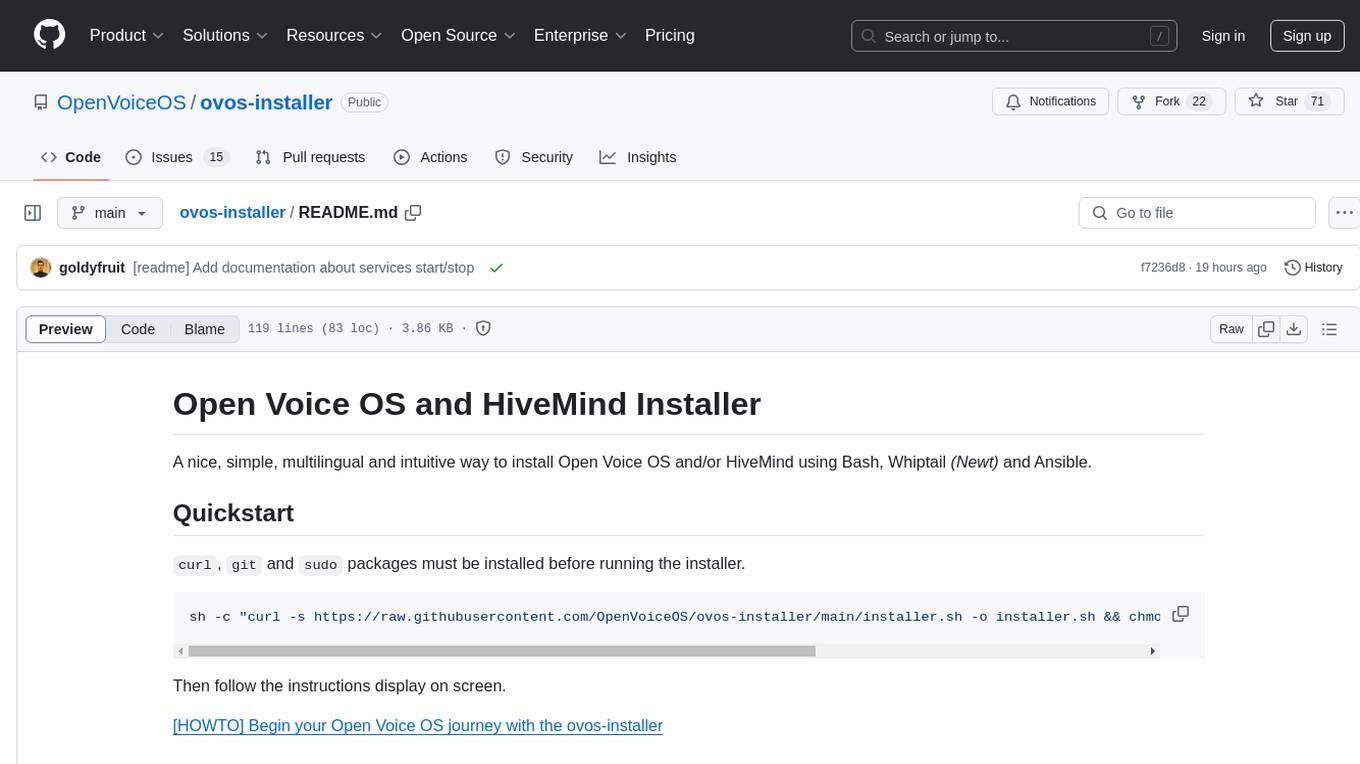Best AI tools for< Uninstall Open Voice Os >
0 - AI tool Sites
No tools available
1 - Open Source AI Tools

ovos-installer
The ovos-installer is a simple and multilingual tool designed to install Open Voice OS and HiveMind using Bash, Whiptail, and Ansible. It supports various Linux distributions and provides an automated installation process. Users can easily start and stop services, update their Open Voice OS instance, and uninstall the tool if needed. The installer also allows for non-interactive installation through scenario files. It offers a user-friendly way to set up Open Voice OS on different systems.
github
: 138
0 - OpenAI Gpts
No tools available